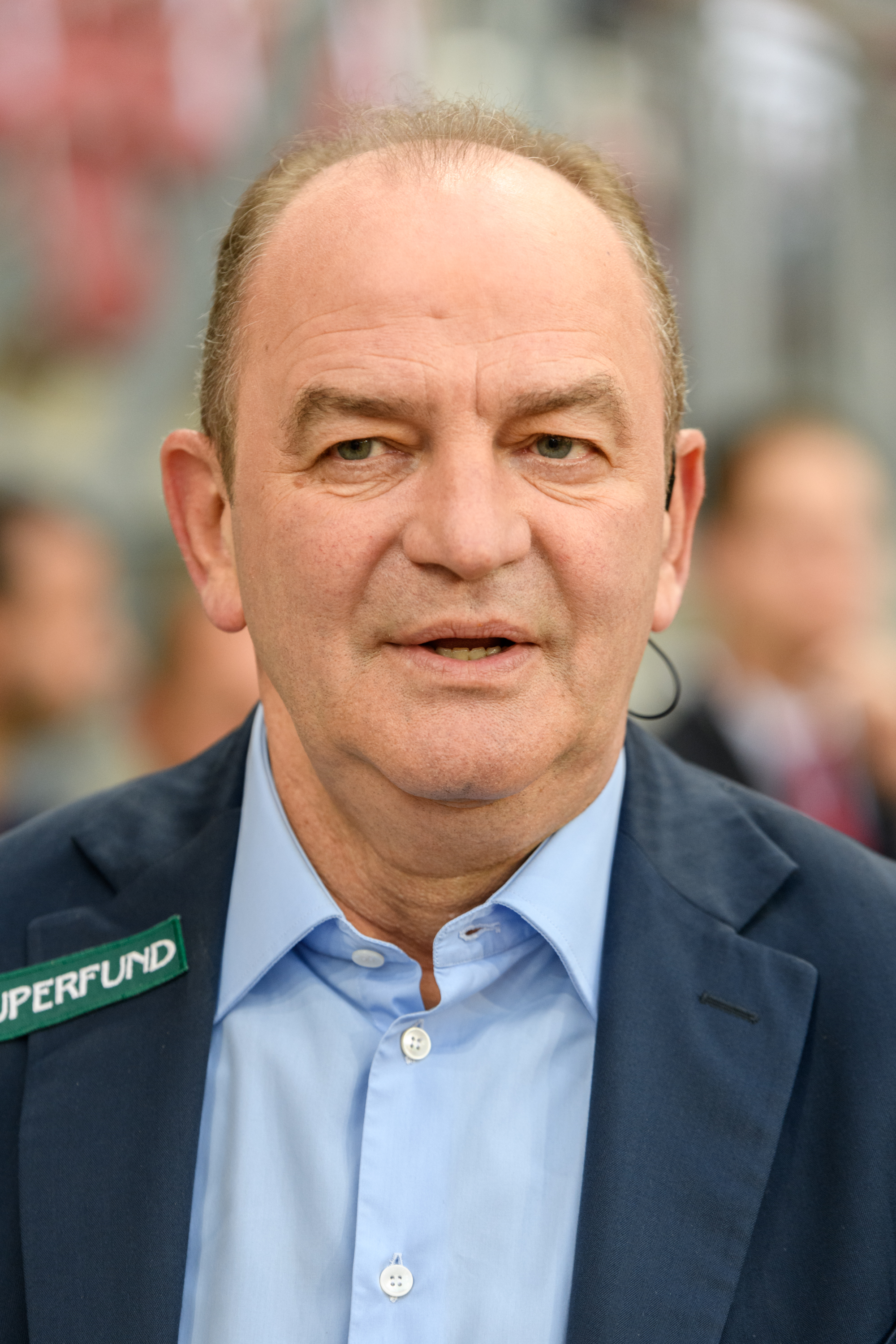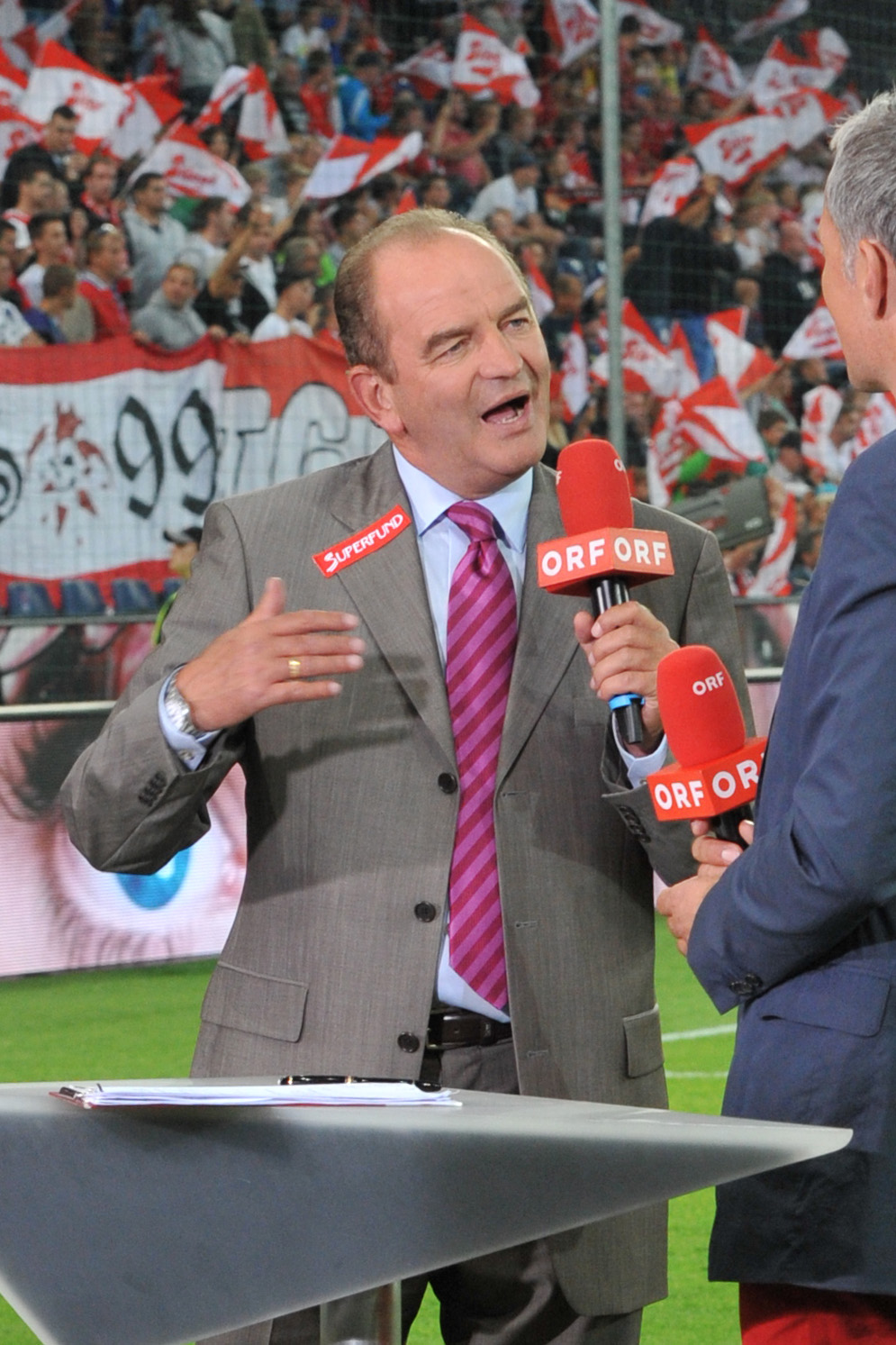1. Early Life and Background
Herbert Prohaska's early life and foundational years set the stage for his distinguished career in football, characterized by his unique nickname and sophisticated playing style.
1.1. Birth and Childhood
Herbert Prohaska was born on August 8, 1955, in the capital city of Vienna, Austria. From a young age, his distinctive curly hair led to his enduring nickname "Schneckerl." This moniker, rooted in Viennese German dialect, translates to "curly hair," and more expressively, as "Shining Curly Hair" or "Gleaming Curly Hair."
1.2. Playing Style and Position
Prohaska was predominantly a midfielder, excelling in a role as a deep-lying playmaker. His playing style was characterized by a combination of talent, elegance, and a combative spirit. He was highly regarded for his exceptional technical skills, tactical intelligence, and precise passing ability, which allowed him to dictate the tempo of matches and initiate offensive plays effectively from deep within the midfield.
2. Player Career
Prohaska's playing career spanned two decades, during which he achieved significant success at both club and international levels, establishing himself as a formidable presence in Austrian and Italian football.
2.1. Club Career
Prohaska began his professional club career in 1972 with Austria Vienna, quickly becoming a central figure for the team. During his initial tenure with the club, which lasted until 1980, he was instrumental in securing four Austrian league titles (1976, 1978, 1979, 1980) and three Austrian Cup victories (1974, 1977, 1980).
In 1980, Prohaska moved to Italy, joining the prestigious Inter Milan. In his second season with the nerazzurri, he helped the club win the Italian Cup in 1982. The following year, in 1982, he transferred to A.S. Roma, where he immediately made an impact by winning the Italian Championship in his very first season (1983). Prohaska's success in the Serie A, which was then relatively closed to foreign players, significantly influenced many aspiring Austrian footballers who subsequently sought to move to Italy.
He returned to FK Austria Wien in 1983 to conclude his playing career, adding further accolades to his domestic record. During this second spell, he contributed to three more Austrian Bundesliga titles (1984, 1985, 1986) and another Austrian Cup (1986). He also won the Austrian Supercup in 1997. He officially retired from playing in 1989.

2.2. International Career
Prohaska made his debut for the Austria national football team in a friendly match against Turkey in November 1974. He became a key player for the national side, earning 84 caps and scoring 12 goals throughout his international career.
He represented Austria in two FIFA World Cup tournaments: the 1978 FIFA World Cup in Argentina and the 1982 FIFA World Cup in Spain. In the 1978 tournament, Prohaska was part of the Austrian team that achieved a memorable 3-2 victory over defending champions West Germany in the second group stage, an upset widely celebrated as the Cordoba Miracle. He also participated in the controversial match against West Germany in the first group stage of the 1982 World Cup, an event known as the Gijón non-aggression pact due to allegations of match-fixing.
His final international appearance was in a June 1989 World Cup qualification match against Iceland. Although Austria subsequently qualified for the 1990 FIFA World Cup, Prohaska retired from international football before the tournament.
The following table details Prohaska's international appearances and goals for the Austria national football team:
| Year | Apps | Goals |
|---|---|---|
| 1974 | 1 | 0 |
| 1975 | 7 | 1 |
| 1976 | 7 | 1 |
| 1977 | 8 | 1 |
| 1978 | 13 | 0 |
| 1979 | 7 | 3 |
| 1980 | 7 | 0 |
| 1981 | 5 | 2 |
| 1982 | 10 | 1 |
| 1983 | 4 | 0 |
| 1984 | 7 | 3 |
| 1985 | 4 | 0 |
| 1986 | 0 | 0 |
| 1987 | 0 | 0 |
| 1988 | 1 | 0 |
| 1989 | 3 | 0 |
| Total | 84 | 12 |
3. Managerial Career
After retiring as a player in 1989, Herbert Prohaska swiftly transitioned into coaching, taking on significant roles at both club and national team levels.
He first served as a coach for FK Austria Wien, where he had a successful tenure from 1990 to 1992, guiding the club to two Austrian League titles (1991, 1992) and two Austrian Cup wins (1990, 1992).
In 1993, Prohaska was appointed manager of the Austria national football team. Under his leadership, Austria successfully qualified for the 1998 FIFA World Cup in France, topping their qualification group. He continued to manage the team through the World Cup itself. However, in 1999, he resigned from his position after a devastating 9-0 defeat against Spain in a UEFA Euro 2000 qualification match. Following his departure from the national team, he briefly returned to manage FK Austria Wien from 1999 to 2000.
4. Awards and Honors
Herbert Prohaska received numerous individual and team honors throughout his distinguished career as both a player and a manager.
As a player
- Austrian Bundesliga (7): 1976, 1978, 1979, 1980, 1984, 1985, 1986
- Austrian Cup (4): 1974, 1977, 1980, 1986
- Austrian Supercup (1): 1997
- Italian Serie A Championship (1): 1983 (with A.S. Roma)
- Italian Cup (1): 1982 (with Inter Milan)
Individual
- Austrian Player of the Year (Krone-Fußballerwahl): 1975, 1985
- Austrian Player of the Year (APA-Fußballerwahl): 1984, 1985, 1988
- Austrian Player of the Year (General): 1987
- UEFA Jubilee Awards (Austria's Golden Player): 2004
- Austrian Footballer of the Century: 2004
- Austrian State Order: 2005
As a manager
- Austrian Bundesliga (2): 1991, 1992 (with FK Austria Wien)
- Austrian Cup (2): 1990, 1992 (with FK Austria Wien)
- Austrian Manager of the Year (Krone-Fußballerwahl): 1997
5. Media Work
Following his managerial career, Herbert Prohaska became a prominent football pundit and commentator for the Austrian Broadcasting Corporation (ORF). He is known for his insightful analysis and occasional controversial remarks. During the 2006 FIFA World Cup, for instance, Prohaska famously suggested that English referee Graham Poll's error of issuing three yellow cards to a single player might have been influenced by excessive alcohol consumption before the match. His media presence has further cemented his status as a respected and recognized figure in Austrian football.

6. Legacy and Impact
Herbert Prohaska stands as one of the most celebrated figures in Austrian football history, widely considered among the nation's greatest players of all time. His exceptional talent, versatility as a deep-lying playmaker, and remarkable achievements both domestically and internationally left an indelible mark on the sport.
His successful spells in the Italian Serie A with Inter Milan and A.S. Roma were particularly impactful. At a time when foreign players were less common in Italian football, Prohaska's ability to not only succeed but also win major titles like the Scudetto and the Italian Cup paved the way for future Austrian players aspiring to play in top European leagues. He demonstrated that Austrian footballers could thrive on the international stage, fostering a belief that inspired many young talents from his home country.
Beyond his playing days, Prohaska's contributions as a manager, most notably leading the Austria national football team to the 1998 FIFA World Cup, further solidified his legacy. His post-career work as a media pundit ensures his continued influence on the Austrian football landscape, making him a revered and respected voice for generations of fans.